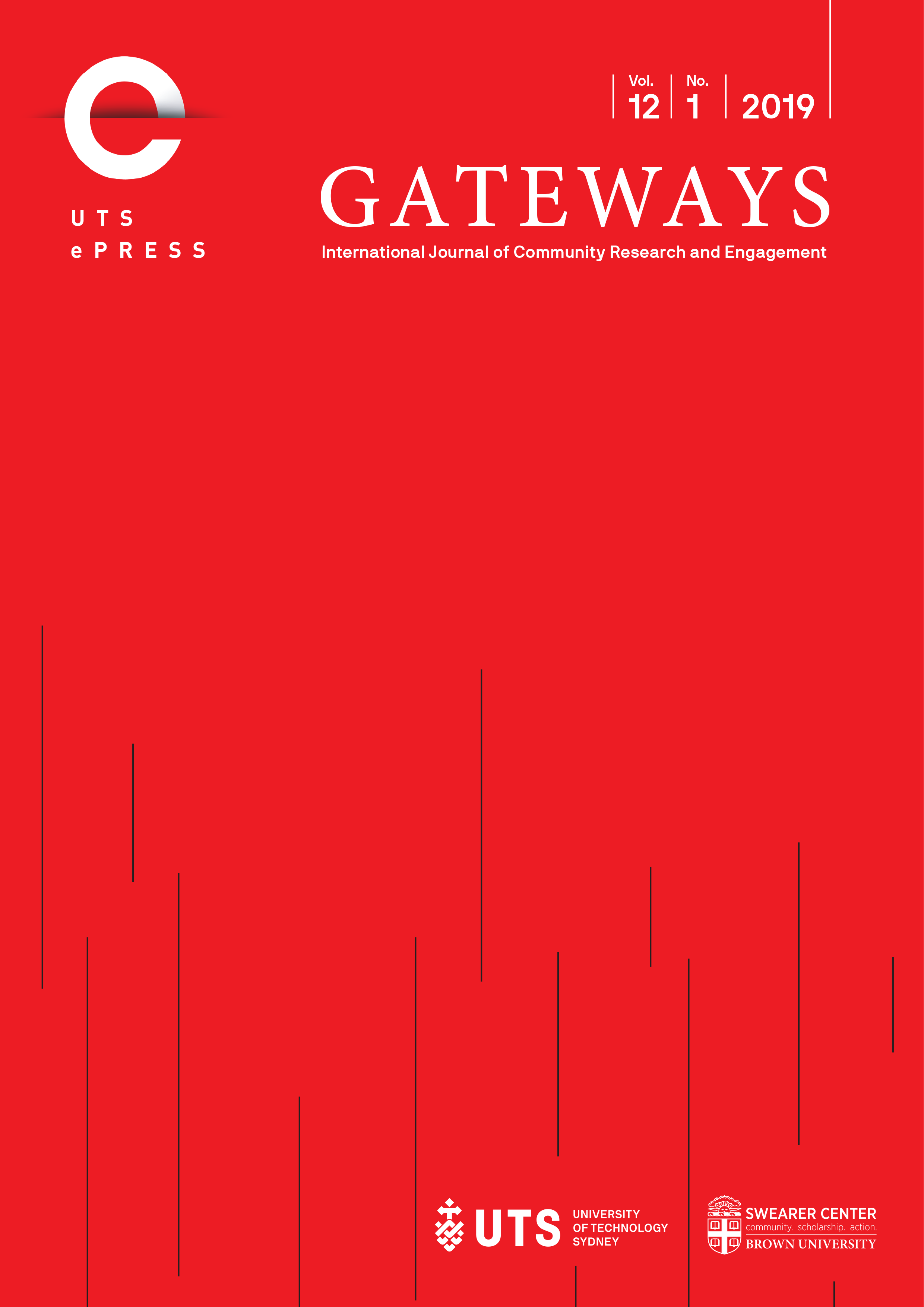Combining feminist intersectional and community-engaged research commitments: Adaptations for scoping reviews and secondary analyses of national data sets
Main Article Content
Abstract
As Hankivsky & Cormier (2011) and Denis (2008) note, the theoretical evolution of intersectionality has outpaced its methodological development. While past work has contributed to our understanding of how to apply intersectionality in research (CRIAW-ICREF & DAWN-RAFH 2014; Morris & Bunjan 2007; Simpson 2009), gaps persist. Drawing on a four-year community-university research collaboration called ‘Changing public services: Women and intersectional analysis’, we explore the incorporation of feminist intersectional and community-engaged research commitments into secondary data analyses, specifically a scoping review and secondary analyses of two Statistics Canada data sets. We discuss our application of these commitments across all stages of designing and undertaking these analyses, in particular drawing into focus the importance of dialogue and deliberation throughout our process. Our application of feminist intersectional and community-engaged commitments – including prioritising community benefit and practising self-reflexivity – revealed gaps and silences in the data, in turn improving our understanding of differences in people’s experiences, our critiques of policies and our identification of new research questions. The lessons learned, we conclude, are valuable for scholars, whether or not community engagement is central to their scholarly commitment.
Keywords
feminist intersectionality, community-engaged research, scoping review, logistic regression, community-university partnerships, Canadian public services
Article Details
Issue
Section
Authors who submit articles to this journal from 31st March 2014 for publication, agree to the following terms:
a) Authors retain copyright and grant the journal right of first publication with the work simultaneously licensed under a Creative Commons Attribution License that allows others to share and adapt the work with an acknowledgement of the work's authorship and initial publication in this journal.
b) Authors are able to enter into separate, additional contractual arrangements for the non-exclusive distribution of the journal's published version of the work (e.g., post it to an institutional repository or publish it in a book), with an acknowledgement of its initial publication in this journal.
c) Authors are permitted and encouraged to post their work online (e.g., in institutional repositories or on their website) prior to and during the submission process, as it can lead to productive exchanges, as well as earlier and greater citation of published work (See The Open Access Citation Advantage Service). Where authors include such a work in an institutional repository or on their website (ie. a copy of a work which has been published in a UTS ePRESS journal, or a pre-print or post-print version of that work), we request that they include a statement that acknowledges the UTS ePRESS publication including the name of the journal, the volume number and a web-link to the journal item.
d) Authors should be aware that the Creative Commons Attribution (CC-BY) License permits readers to share (copy and redistribute the work in any medium or format) and adapt (remix, transform, and build upon the work) for any purpose, even commercially, provided they also give appropriate credit to the work, provide a link to the license, and indicate if changes were made. They may do these things in any reasonable manner, but not in any way that suggests you or your publisher endorses their use.
For Volume 6 (2013) and before, the following copyright applied:
Articles published by UTSePress are protected by copyright which is retained by the authors who assert their moral rights. Authors control translation and reproduction rights to their works published by UTSePress. UTSePress publications are copyright and all rights are reserved worldwide. Downloads of specific portions of them are permitted for personal use only, not for commercial use or resale. Permissions to reprint or use any materials should be directed to UTSePress.
